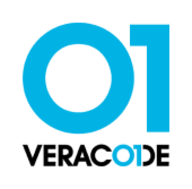

Veracode and Invicti are leading contenders in the application security market. Invicti is often seen as superior due to its comprehensive feature set and automation capabilities, making it a preferred choice for those seeking a feature-rich solution.
Features: Veracode offers standout static analysis capabilities and strong third-party tool integration. It provides effective vulnerability detection and remediation guidance. Invicti’s key features include dynamic scanning, real-time issue identification, and automation for detailed web vulnerability analysis, offering a thorough approach to security management.
Room for Improvement: Veracode users express a desire for faster scan times and enhanced reporting capabilities. They find limitations in its analytics precision that could be improved. Invicti needs better documentation and support for complex configurations. Users also wish for improved interface responsiveness in larger environments.
Ease of Deployment and Customer Service: Veracode is recognized for its simple cloud deployment and seamless integration into workflows, coupled with proactive customer support. Although Invicti offers comprehensive deployment guides, users find its setup process challenging in larger environments, with diverse feedback on support team responsiveness.
Pricing and ROI: Veracode’s pricing strategy is attractive to small enterprises, providing a cost-effective option with compelling ROI metrics for long-term utilization. In contrast, Invicti demands a higher initial investment but justifies this with robust security features and efficiency, delivering a high ROI that appeals to enterprises ready to spend upfront for extensive capabilities.


Invicti helps DevSecOps teams automate security tasks and save hundreds of hours each month by identifying web vulnerabilities that matter. Combining dynamic with interactive testing (DAST + IAST) and software composition analysis (SCA), Invicti scans every corner of an app to find what other tools miss with 99.98% accuracy, delivering on the promise of Zero Noise AppSec. Invicti helps discover all web assets — even ones that are lost, forgotten, or created by rogue departments. With an array of out-of-the-box integrations, DevSecOps teams can get ahead of their workloads to hit critical deadlines, improve processes, and communicate more effectively while reducing risk and hitting the ROI goals.
Veracode is a leading provider of application security solutions, offering tools to identify, mitigate, and prevent vulnerabilities across the software development lifecycle. Its cloud-based platform integrates security into DevOps workflows, helping organizations ensure that their code remains secure and compliant with industry standards.
Veracode supports multiple application security testing types, including static analysis (SAST), dynamic analysis (DAST), software composition analysis (SCA), and manual penetration testing. These tools are designed to help developers detect vulnerabilities early in development while maintaining speed in deployment. Veracode also emphasizes scalability, offering features for enterprises that manage a large number of applications across different teams. Its robust reporting and analytics capabilities allow organizations to continuously monitor their security posture and track progress toward remediation.
What are the key features of Veracode?
What benefits should users consider in Veracode reviews?
Veracode is widely adopted in industries like finance, healthcare, and government, where compliance and security are critical. It helps these organizations maintain strict security standards while enabling rapid development through its integration with Agile and DevOps methodologies.
Veracode helps businesses secure their applications efficiently, ensuring they can deliver safe and compliant software at scale.
We monitor all Static Application Security Testing (SAST) reviews to prevent fraudulent reviews and keep review quality high. We do not post reviews by company employees or direct competitors. We validate each review for authenticity via cross-reference with LinkedIn, and personal follow-up with the reviewer when necessary.